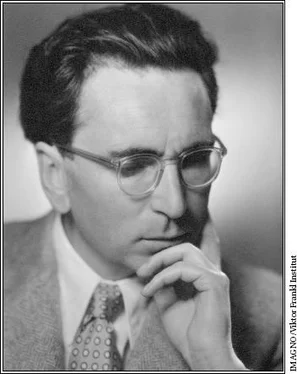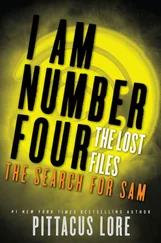Another time, in a forest, with the temperature at 2°F, we began to dig up the topsoil, which was frozen hard, in order to lay water pipes. By then I had grown rather weak physically. Along came a foreman with chubby rosy cheeks. His face definitely reminded me of a pig’s head. I noticed that he wore lovely warm gloves in that bitter cold. For a time he watched me silently. I felt that trouble was brewing, for in front of me lay the mound of earth which showed exactly how much I had dug.
Then he began: “You pig, I have been watching you the whole time! I’ll teach you to work, yet! Wait till you dig dirt with your teeth—you’ll die like an animal! In two days I’ll finish you off! You’ve never done a stroke of work in your life. What were you, swine? A businessman?”
I was past caring. But I had to take his threat of killing me seriously, so I straightened up and looked him directly in the eye. “I was a doctor—a specialist.”
“What? A doctor? I bet you got a lot of money out of people.”
“As it happens, I did most of my work for no money at all, in clinics for the poor.” But, now, I had said too much. He threw himself on me and knocked me down, shouting like a madman. I can no longer remember what he shouted.
I want to show with this apparently trivial story that there are moments when indignation can rouse even a seemingly hardened prisoner—indignation not about cruelty or pain, but about the insult connected with it. That time blood rushed to my head because I had to listen to a man judge my life who had so little idea of it, a man (I must confess: the following remark, which I made to my fellow-prisoners after the scene, afforded me childish relief) “who looked so vulgar and brutal that the nurse in the out-patient ward in my hospital would not even have admitted him to the waiting room.”
Fortunately the Capo in my working party was obligated to me; he had taken a liking to me because I listened to his love stories and matrimonial troubles, which he poured out during the long marches to our work site. I had made an impression on him with my diagnosis of his character and with my psychotherapeutic advice. After that he was grateful, and this had already been of value to me. On several previous occasions he had reserved a place for me next to him in one of the first five rows of our detachment, which usually consisted of two hundred and eighty men. That favor was important. We had to line up early in the morning while it was still dark. Everybody was afraid of being late and of having to stand in the back rows. If men were required for an unpleasant and disliked job, the senior Capo appeared and usually collected the men he needed from the back rows. These men had to march away to another, especially dreaded kind of work under the command of strange guards. Occasionally the senior Capo chose men from the first five rows, just to catch those who tried to be clever. All protests and entreaties were silenced by a few well-aimed kicks, and the chosen victims were chased to the meeting place with shouts and blows.
However, as long as my Capo felt the need of pouring out his heart, this could not happen to me. I had a guaranteed place of honor next to him. But there was another advan- tage, too. Like nearly all the camp inmates I was suffering from edema. My legs were so swollen and the skin on them so tightly stretched that I could scarcely bend my knees. I had to leave my shoes unlaced in order to make them fit my swollen feet. There would not have been space for socks even if I had had any. So my partly bare feet were always wet and my shoes always full of snow. This, of course, caused frostbite and chilblains. Every single step became real torture. Clumps of ice formed on our shoes during our marches over snow-covered fields. Over and again men slipped and those following behind stumbled on top of them. Then the column would stop for a moment, but not for long. One of the guards soon took action and worked over the men with the butt of his rifle to make them get up quickly. The more to the front of the column you were, the less often you were disturbed by having to stop and then to make up for lost time by running on your painful feet. I was very happy to be the personally appointed physician to His Honor the Capo, and to march in the first row at an even pace.
As an additional payment for my services, I could be sure that as long as soup was being dealt out at lunchtime at our work site, he would, when my turn came, dip the ladle right to the bottom of the vat and fish out a few peas. This Capo, a former army offcer, even had the courage to whisper to the foreman, whom I had quarreled with, that he knew me to be an unusually good worker. That didn’t help matters, but he nevertheless managed to save my life (one of the many times it was to be saved). The day after the episode with the foreman he smuggled me into another work party.
There were foremen who felt sorry for us and who did their best to ease our situation, at least at the building site. But even they kept on reminding us that an ordinary laborer did several times as much work as we did, and in a shorter time. But they did see reason if they were told that a normal workman did not live on 10H ounces of bread (theoretically—actually we often had less) and 11 pints of thin soup per day; that a normal laborer did not live under the mental stress we had to submit to, not having news of our families, who had either been sent to another camp or gassed right away; that a normal workman was not threatened by death continuously, daily and hourly. I even allowed myself to say once to a kindly foreman, “If you could learn from me how to do a brain operation in as short a time as I am learning this road work from you, I would have great respect for you.” And he grinned.
Apathy, the main symptom of the second phase, was a necessary mechanism of self-defense. Reality dimmed, and all efforts and all emotions were centered on one task: preserving one’s own life and that of the other fellow. It was typical to hear the prisoners, while they were being herded back to camp from their work sites in the evening, sigh with relief and say, “Well, another day is over.”
It can be readily understood that such a state of strain, coupled with the constant necessity of concentrating on the task of staying alive, forced the prisoner’s inner life down to a primitive level. Several of my colleagues in camp who were trained in psychoanalysis often spoke of a “regression” in the camp inmate—a retreat to a more primitive form of mental life. His wishes and desires became obvious in his dreams.
What did the prisoner dream about most frequently? Of bread, cake, cigarettes, and nice warm baths. The lack of having these simple desires satisfied led him to seek wish-fulfillment in dreams. Whether these dreams did any good is another matter; the dreamer had to wake from them to the reality of camp life, and to the terrible contrast between that and his dream illusions.
I shall never forget how I was roused one night by the groans of a fellow prisoner, who threw himself about in his sleep, obviously having a horrible nightmare. Since I had always been especially sorry for people who suffered from fearful dreams or deliria, I wanted to wake the poor man. Suddenly I drew back the hand which was ready to shake him, frightened at the thing I was about to do. At that moment I became intensely conscious of the fact that no dream, no matter how horrible, could be as bad as the reality of the camp which surrounded us, and to which I was about to recall him.
Because of the high degree of undernourishment which the prisoners suffered, it was natural that the desire for food was the major primitive instinct around which mental life centered. Let us observe the majority of prisoners when they happened to work near each other and were, for once, not closely watched. They would immediately start discussing food. One fellow would ask another working next to him in the ditch what his favorite dishes were. Then they would exchange recipes and plan the menu for the day when they would have a reunion—the day in a distant future when they would be liberated and returned home. They would go on and on, picturing it all in detail, until suddenly a warning was passed down the trench, usually in the form of a special password or number: “The guard is coming.”
Читать дальше












